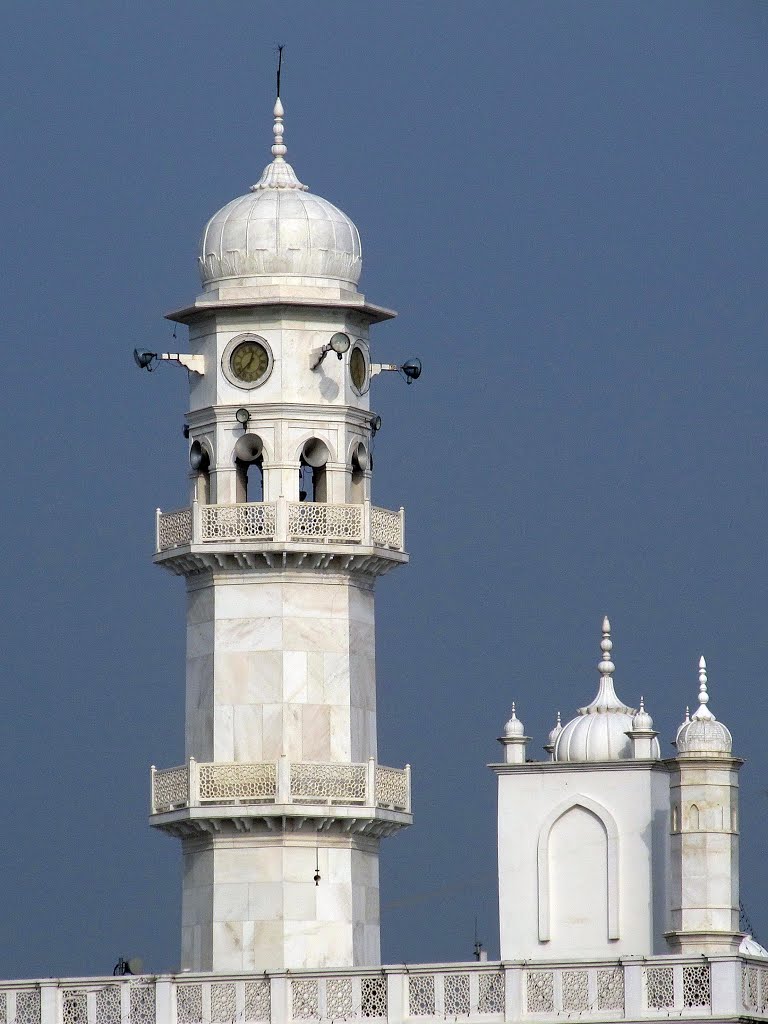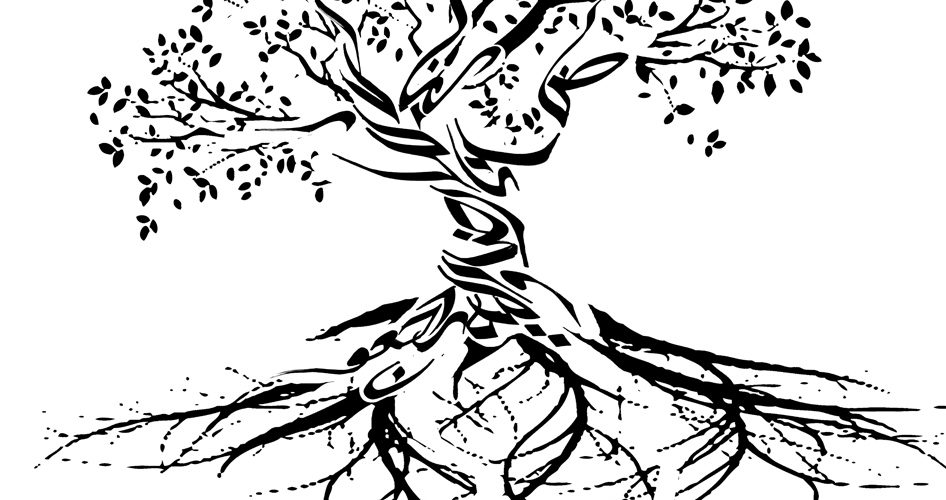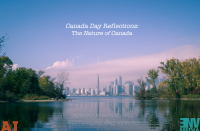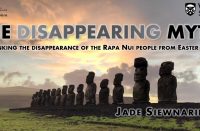The Islamic philosophy of Tauhid (Unity of God) connects the entire creation to the Creator. A view that ultimately leads to an understanding that we are all connected, that we are all related and that we must work together for peace and environmental harmony.
Islamic Cosmology “We are not the centre of the Universe”
The Islamic philosophy of Tauhid (Unity of God) connects the entire creation to the Creator. A view that ultimately leads to an understanding that we are all connected, that we are all related and that we must work together for peace and environmental harmony.
Islamic Cosmology “We are not the centre of the Universe”
An Islamic worldview recognizes that the earth is not at the epicentre of the universe, rather, numerous worlds exists within the cosmos with Allah (Arabic word for God), as stated in the first Chapter of the Quran Surah Al-Fatihah(Chapter 1 Verse 2) being Rabbillallameen “Lord of All the Worlds” (note the plural on “world”). Imagine what the world can look like when we no longer see peoples of different races, nationalities, tribes, as “the other” because we acknowledge our common source? Quite a revolutionary shift in paradigm considering growing issues such as racism, terrorism, sexism and xenophobia. After all, we are comprised of particles, with all of our particles and the particles of the universe starting according to the Holy Quran when God created the Big Bang:
[21:31] Do not the disbelievers see that the heavens and the earth were a closed-up mass, then We[1] opened them out? And We made from water every living thing. Will they not then believe?
Beyond human relations, this connection also encompasses the need to respect every community of living beings (animals, plants, single cell organism) on the earth, which the Holy Quran states are also communities just like us:
[ 6:39] There is not an animal that crawls in the earth, nor a bird that flies on its two wings, but they are communities like you. We have left out nothing in the Book. Then to their Lord shall they be gathered together
Including living being(s) in other parts of the cosmos yet to be discovered or yet to reach us:
And among His[2] Signs is the creation of the heavens and the earth, and of whatever living creatures He has spread forth in both. And He has the power to gather them together when He pleases.” (Ch.42 v.30)
While the cosmos comprises of material structures, stars, planets and galaxies, Islam also speaks of the spiritual world and identify spiritual beings (non-material) called Malaika (in Arabic-Messengers) or more commonly known in English as “Angels”. Unlike the common conception of Angels as “fairies” or literal winged creatures, Malaikas are spiritual beings that are ordered by God to govern and operate every aspect of the material world under natural laws (think of the forces that governs the properties of water, the characters of light, the place of the solar system, gravity etc) and the spiritual world, with no freewill to deviate from the course of its determined function. For every universal laws and functions, a Malaika exists to direct the laws. The believe in Angels (Malaika) is one of the six articles of the Islamic faith.
On a spiritual level, the task of Malaika includes among others intricate recording, organizing and moulding the imprint of human actions/deeds on their souls. Disregard the concept of the environmental footprint for a moment and think of the concept of “footprint of the soul.” This imprint which reflects our deeds will then be used as a record of our conduct which will make us accountable for our actions.For every action that a soul makes that goes beyond the prescribed middle path (the path of justice –adl), there is an unpleasant reaction. When numerous souls (i.e the collective society) foregoes the path of adl, the tangible impact felt by the rest of the society is then multiplied. In Islam, those who impart suffering on innocents including on animals will be recompensed. For example, a saying of the Prophet Muhammad (peace be upon him) recorded in a Hadith[3]basically forbids acts such as trophy hunting, poaching of animals to have parts of their bodies sold as those who do so will be punished in the Day of Judgement:
Whoever kills a sparrow or anything bigger than that without a just cause, God will hold him accountable on the Day of Judgment.” The listeners asked, “O Messenger of God, what is a just cause?” He replied, “That he will kill it to eat, not simply to chop off its head and then throw it away.
The concept of Adl (justice) transcends our earthly boundaries and does not solely remain in the fallible justice system that exists in this current world. To ensure the rights of the “voiceless” (marginalized communities, animals, the land), Islam recognizes that Adl follows us as our souls move to the Hereafter after our passing (in Indigenous spirituality- the spirit world). While some individuals may profit and gain material prestige from destroying the natural environment, these imprints will continue to follow the soul (which is immaterial) and will be taken into account by God on the Day of Judgement.
The Malaika is also tasked with governing the material “cause and effect.” For example,when humans pollute the water, pillage the earth, exploit people, maim the animals and disrupt the balance, there will be natural and tangible consequences. Islamic theology sees no contradiction between natural laws and spiritual laws, as they both arise from the same source. It is therefore natural that when individuals forego spiritual peace for excessive material and capitalist pursuits, the ravaged environment reflects this imbalance. In a stunning verse 1500 years ago that forebodes climate change and its destructive powers,as well as the numerous social upheavals and wars, the Holy Quran states the importance of turning the behemoth of greed and corruption around:
Corruption has appeared on land and sea because of what men’s hands have wrought, that He may make them taste the fruit of some of their doings, so that they may turn back from evil.” (Chapter 30 verse 42)
With Scientists such as Beddington coining the term the “perfect storm” to illustrate the food, water and energy crisis that is projected to occur in 2030, the question for us then remains,will we allow ourselves to wake up from our apathy and material stupor?
Unity by Learning and Respecting the Wisdoms of All the Great Teachers of the World
Another important component of Tauhid (Unity of God) and a tool to move people towards the route of peace is the believe in all the prophets of God (Islam’s 4th article of faith). This faith leads us to search for the common wisdom shared by all beliefs and taught by the Great teachers from around the world.
Prophecies and revelations have been experienced by those spiritually inclined around the world and Muslims are required to believe in all of God’s messengers (Chapter 16 verse 36), which according to the Hadith amounts to approximately 124,000 messengers sent to communities/ nations from the early dawn of human civilization (only 25 prophets are named in the Holy Quran).
Some of these great teachers or messengers include but are not limited to: Adam, Abraham, Noah, Moses, Jesus, Muhammad, and for some Islamic sects also include Eastern teachers such as Buddha, Lord Khrishna, Tao, and Confucious, Greek prophets such as Socrates, Indigenous prophets such as The Great Peace Maker (Mohawk), African prophets and others too numerous to mention or those whose names may be lost in the record of history. This central belief of acknowledging all of the Creator’s messengers serves as a force of unification between all tribes and peoples, the central idea of which is all long-lasting faith traditions have at their root truth and universal wisdom. In addition, it also teaches that humanity throughout time have never and will never be abandoned as we have been provided with equal opportunity to salvation when we utilize our conscience to return to the middle path, which is the path of balance and peace (Islam= Salam= Peace).
In Islam, Allah communicates via the medium of Malaika with those who are spiritually inclined. In Islam, Prophets are those who due to the quality of their pure souls are selected to teach others by receiving guidance directly from God. Similar to the transmission of sound to the ears by the presence of oxygen, or the need for light for the eyes to see, Malaika acts as a medium of communication from the Creator to His creation. Therefore, just as the ears need to be properly functioning to hear sound, and the eyes need to be healthy (and open) to see, In Islam, the soul needs to be clear or purified to communicate with God and most importantly, it needs to be humble. Purity of the soul is not connected to material wealth, academic knowledge, or worldly prestige. Rather, it is tied to humility, a character that can be obtained through respecting the land and fulfilling our responsibility as stewards/ vicegerents (Khalifa) of the land. As the Quran states:
And walk not in the earth haughtily, for thou canst not rend the earth, nor canst thou reach the mountains in height. [ 17: 38)
In a time of instant 24/7 connection, there is sadly a lack of spiritual connection, leaving a gaping hole that is then filled by excessive material pursuits and “stuff”. However, according to Islam, those who sincerely seeks the Creator, will find the Creator:
When My servants ask thee about Me, tell them, I am near, I do answer the call of the caller when he seeks Me. So they too should respond to Me… [2:187]
Communication also occurs through dreams. The Aboriginees of Australia and the Indigenous peoples of Canada have sacred traditions and reverence for dreams, and an understanding of the importance of the “Dream World”. This is also the case in Islam with some dreams acknowledged to be carrying messages of truth through symbolic meanings and some dreams containing prophecies. Most commonly known among the Abrahamic faith (including Islam) is the true dream of the Pharaoh which was interpreted by Prophet Joseph, foretelling seven years of abundance symbolized by seven plump cows followed by seven years of famine symbolized in the dream by seven lean cows devouring the plump cows. Muslim sages have developed books translating the meanings of dreams and Islam is not the only faith tradition to do so. It is the believe in Islam that all souls have the capacity to communicate with the Divine, yet this requires taking the path of reflection and simplicity.
Another component of Tauhid (unity of God) is a belief in the spiritual equality of men, women, and all nations, races and tribes.With the emphasis that one is favoured in the sight of the Creator based on his or her service to humanity. On equality of nations, races and tribes the Quran states:
O mankind, We have created you from a male and a female; and We have made you into tribes and sub-tribes that you may recognize one another. Verily, the most honourable among you, in the sight of Allah, is he who is the most righteous among you. Surely, Allah is All-knowing, All-Aware [49:14]
On the issue of spiritual equality of male and female the Quran states:
Surely, men who submit themselves to God and women who submit themselves to Him, and believing men and believing women, and obedient men and obedient women and truthful men and truthful women, and men steadfast in their faith and steadfast women, and men who are humble and women who are humble, and men who give alms and women who give alms, and men who fast and women who fast, and men who guard their chastity and women who guard their chastity, and men who remember Allah much and women who remember Him — Allah has prepared for all of them forgiveness and a great reward. [33:36]
Nowhere is it permissible to consider one’s race, nationality, or gender as superior. These verses illustrate that despite our diversity of language, tribes and so on, we are simply asked to do goodto others. Thus, unlike a capitalistic/ materialistic worldview which promotes the idea of infinite economic progress, the need for new frontiers of exploitation and resource extraction, and the continuous need for profit despite collateral damage to the environment, Islam enjoins that an individual’s measure of success is judged by their spiritual evolution. This spiritual progress does require the spending of material goods such as money. However instead of encouraging the consumption of stuff on personal wants, the emphasis is put on individual sacrifice for the community, namely spending one’s wealth for alms and charities.
Another fundamental of Islamic economic/finance is the prohibition of “interest”. The institution of interest promotes financial speculation and social injustice. The reason being is that interest does not promote the distribution of wealth to the poor and encourages hoarding. This injunction which is sadly not followed by “Muslim” majority countries is taught to ensure that no one and no nation will be entrapped in a cycle of debt that continues to multiply and therefore enslave them. Islam’s teachings against the institution of interest has the potential to free nations that have so far been entrenched in unequal structural adjustment policies and international debt, as they can never catch up with the multiplying interest rates (see the following chapters and verses for Islamic guidance against the practice of taking interest: 2:276; 2:277; 2:279; 3:131; 4: 162; 30:40).

Ata Raja – Minaratul Masih (Hindu Mohalla, Qadian)
Prophet Muhammad (peace and blessings be upon him): A mercy for all humankind
There is none amongst the believers who plants a tree, or sows a seed, and then a bird, or a person, or an animal eats thereof, but it is regarded as having given a charitable gift [for which there is great recompense].” [Prophet Muhammad (pbuh) Hadith KitabAl-Bukhari, 3:513].
One of Allah’s (God’s) characteristic is that He is Ar-Rahman (the Gracious) and Ar-Rahim (the Merciful). Islam encourages Muslims to emulate these two traits and Muslims believe that Prophet Muhammad (pbuh) is the culmination of exemplary grace and was sent as a mercy for all humankind.
Unlike popular media representation of Muslims often painting over 1.6 billion peoples from hundreds of countries, cultures and background with one simplistic and broad brushstroke. It is important to understand that Muslims are not a monolith and that there are numerous schools of traditions, interpretations and sects. While the general population are mostly familiar with the Sunni sect and the Shiite sect of Islam, the Sunni sect can in fact be further categorized into numerous sub-sects with varying practices (Deobandi, Barelhvi, Sufi, Bohras, Wahhabi etc) and this is also the case with the Shiite sect. In Canada, there is a strong community of Ismaili Muslims (Ismailis are a sub-sect of Shiite Islam) led by His Highness Prince Shah Karim Al Husseini Aga Khan IV. The community is known for their magnificent Aga Khan Museum of Islamic Civilization which is recognized for its architectural beauty and environmental landscaping.
The Ahmadiyya Muslim Community (established in Canada in 1966) is another muslim community established in 209 countries. It is a revival Islamic sect established in 1889 by Mirza Ghulam Ahmad of Qadian, India, who is considered by his followers as the prophesized Imam Mahdi (Guided Leader) and the Promised Messiah foretold by Prophet Muhammad (pbuh) 1500 years ago. This community has been led by a spiritual Caliphate since the demise of its founder in 1908, and is currently headquartered in the United Kingdom.
This divergence of Muslims into different sects has been prophesized by Prophet Muhammad (peace be upon him) prior to his death, and eventual unity and peace has also been prophesized when Muslims themselves will seek to return to Islam’s middle path of peace and balance. Yet despite the diversity in interpretations, the environmental teachings taught by the Prophet (pbuh) has led Muslims of all different sects to unite and promote initiatives to conserve, restore and to protect our natural environment. The commandment to protect the environment and the land is based on numerous verses in the Quran encouraging gratefulness to the Creator:
[6:100] And it is He Who sends down water from the cloud; and We bring forth therewith every kind of growth; then We bring forth with that green foliage wherefrom We produce clustered grain. And from the date-palm, out of its sheaths, come forth bunches hanging low. And We produce therewith gardens of grapes, and the olive and the pomegranate — similar and dissimilar. Look at the fruit thereof when it bears fruit, and the ripening thereof. Surely, in this are Signs for a people who believe.
Muslim youths are especially leading and reclaiming the middle pathto protect the environment as taught by Prophet Muhammad (peace be upon him) 1500 years ago. For example, Khaleafa.com was founded by Muaz Nasir an alumnus of the University of Toronto and is a non-sectarian interfaith group to stimulate discussion and collaboration on environmental initiatives. This group runs the “Green Khutbah Campaign” a campaign encouraging faith leaders to devote the Friday sermon around Earth Day to teach about environmentalism. In the last four years, the campaign has garnered global support from organizations and mosques from over 20 countries. As Nasir argue,“Islam is rich in environmental teachings from both the Quran and the prophetic tradition, and it is only recently that we have begun to reclaim our history in this field.”
The Ahmadiyya Muslim Community in Canada is also working towards better environmental practices with properties and many of the Mosques LED equipped, using solar energy in the purpose built mosques, organizing tree planting initiatives and the running of a community orchard, organic greenhouse, and a windmill powered farm at Bradford, Ontario.The community is also actively communicating and learning from the wisdom of Canada’s Indigenous elders.
According to the late 4th Caliph of the Community, Mirza Tahir Ahmad, who has visited Canada on numerous occasions, “If you believe in the Creator you must also believe in his Creation. If you love the artist, you must also love his art.”
Global injusticeis at the root of environmental degradation and social upheaval. This quest for balance in Islam starts with the quest for justice and the spiritual struggle (jihad) to develop a microcosm of inner peace. This inner struggle (jihad) for peace needs to start first and foremost with Muslims themselves. It is possible to have an environmental, economic, and social revolution without bloodshed when actions are premised on a spiritual revolution that rejects materialism and greed and instead promotes charity and the distribution of wealth. At the level of an individual soul,this spiritual revolution starting at the personal level will hopefully grow collectively and radiate peace externally to the wider society, thus contributing to long-term environmental balance and honouring the true environmentalist legacy of Prophet Muhammad (peace and blessing be upon him).
[17:36] And give full measure when you measure, and weigh with a right balance; that is best and most commendable in the end.
Note: The verses of the Holy Quran used in this article counts Bismillah as the first verse.
The author is a member of the Ahmadiyya Muslim Community and this article does not represent the official views of the Community
[1]We: the use of “We” does not mean plurality of God. The word is used in Arabic to connote respect and also refers largely to the entire domain of the Creator.
[2]His: The use of “He” or “His in the Quran does not mean God is male. God in Islam is not male or female. Arabic language is a gendered language similar to Hebrew, French etc.
[3]Hadith: a compilation of purported sayings of the Prophet Muhammad (peace be upon him) in the form of oral narrations recorded anywhere between 150-300 years after the death of the Prophet (pbuh). These sayings are composed of chains of narrations traced back to the actual companions of the Prophet and needs to be read in conjunction with the Quran to determine its authenticity. Some hadith are authentic (sahih) and others are rejected as inaccurate or fabricated if: 1) it contradicts the Holy Quran; 2) depending on the reputation of truthfulness of the narrator; and 3) if the chain of narration is broken.
Tammara Soma (planning, University of Toronto) investigates the factors that influence urban household food consumption and food wasting practices in Indonesia. She strives to make food system consideration (including sustainable food production, distribution, consumption and the management of food waste) essential to urban planning decision making. Ms. Soma is a Pierre Elliott Trudeau Doctoral Scholar.
Tammara Soma (planning, University of Toronto) investigates the factors that influence urban household food consumption and food wasting practices in Indonesia. She strives to make food system consideration (including sustainable food production, distribution, consumption and the management of food waste) essential to urban planning decision making. Ms. Soma is a Pierre Elliott Trudeau Doctoral Scholar.













